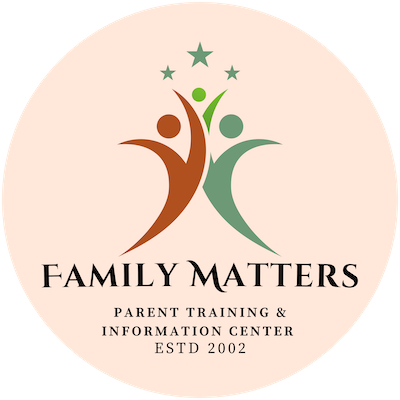Social/Emotional Learning
The Social Emotional Learning standards in Illinois provide a framework for educators to integrate SEL into their curriculum and instruction. These standards outline the specific skills and competencies that students should develop at each grade level, from pre-kindergarten through high school.
The SEL standards in Illinois cover five key components: self-awareness, self-management, social awareness, relationship skills, and responsible decision-making. Each component is further divided into specific domains that address various aspects of social and emotional development.
-
Self-Awareness
Self-awareness is the ability to recognize and understand one’s own emotions, thoughts, and values. It involves being able to assess one’s strengths and weaknesses and have a realistic sense of self. Developing self-awareness is essential for building a positive self-image and fostering self-confidence.
-
Self-Management
Self-management refers to the ability to regulate one’s emotions, thoughts, and behaviors in different situations. It involves setting and working towards goals, managing stress, and demonstrating self-discipline. Developing self-management skills empowers individuals to navigate challenges effectively and make positive choices.
-
Social Awareness
Social awareness involves understanding and empathizing with the feelings, needs, and perspectives of others. It includes recognizing and appreciating diversity, showing empathy, and demonstrating respect for others. Developing social awareness fosters a sense of belonging and promotes positive relationships.
-
Relationship Skills
Relationship skills refer to the ability to establish and maintain healthy and positive relationships with others. It involves effective communication, active listening, cooperation, and conflict resolution. Developing relationship skills enables individuals to build strong connections and work collaboratively with others.
-
Responsible Decision-Making
Responsible decision-making involves making thoughtful and ethical choices based on consideration of the consequences. It includes problem-solving, critical thinking, and considering the well-being of oneself and others. Developing responsible decision-making skills empowers individuals to make choices that positively impact themselves and their communities.
Understanding the Social Emotional Learning standards in Illinois is crucial for fostering the social and emotional development of our children. By prioritizing SEL, educators, parents, and community members can create an environment that supports the overall well-being and academic success of students.
Information directly obtained from Everyday Speech Understanding the Social Emotional Learning Standards in Illinois: A Comprehensive Overview.
To read the full article, please click on the button below:
Mental Health
Schools and educators can address mental health in a variety of ways, ranging from academic interventions, peer-to-peer support, bully prevention programs, school counseling services, and connections to community mental health resources. But, even with all of these resources, student mental health remains a critical concern within the educational system. Students with disabilities can be at a particularly high risk for developing mental health challenges, as they often lack needed social supports that can provide some buffer to mental health difficulties. Attending to the mental health needs of all students, but particularly those with disabilities must remain a priority for school staff and families. AT Family Matters PTIC, we encourage families to partner with their school team, address mental health concerns in their IEP planning process, and familiarize themselves with local community resources that can assist them in caring for their students.
According to ISBE, mental health includes our emotional, psychological, and social well-being. It affects how we think, feel, and act. It also helps determine how we handle stress, relate to others, and make healthy choices. It is essential to know that mental health is more than just the absence of a mental disorder or disability. Mental health is essential at every stage of life, from childhood and adolescence through adulthood.
The Illinois State Board of Education recognizes that supporting the mental/emotional well-being of our educators and our students is vitally important to supporting the vision, mission, and goals of our agency.
Illinois requires that licensed school personnel and administrators who work with pupils in kindergarten through Grade 12 shall be trained to identify the warning signs of mental illness and suicidal behavior in youth and shall be taught appropriate intervention and referral techniques.
Public Act 102-0321 (Senate Bill 1577) amends the compulsory attendance article of the School Code by allowing students to take up to five mental or behavioral health days per year. A student is not required to provide a medical note and must be given the opportunity to make up any schoolwork missed during such absences. Following the second mental health day, a student may be referred to the appropriate school personnel.
Screening, Assessment, and Support Services Can Help
Screening, Assessment, and Support Service (SASS) is a statewide crisis program for children and youth. SASS provides intensive mental health services for children and youth who may need hospitalization for mental health care. SASS will also provide crisis intervention, linkage, and coordination of services to other community-based mental health agencies for aftercare and outpatient treatment. The SASS program's main focus is to stabilize the family and maintain the youth at home and in the community. The program has a single point of entry, the Crisis and Referral Entry Service (CARES).
The following criteria will be applied to determine eligibility based on age and insurance status:
Children and youth under the age of 18 seeking public funding for psychiatric services through the Illinois Department of Human Services
Any child or youth enrolled in Illinois Healthcare and Family Services Medicaid Program or Medicaid Managed Care Organization
Any child or youth for whom the Illinois Department of Children and Family Services has legal responsibility
A SASS crisis worker will respond to the youth in crisis to complete a crisis screening and make recommendations on appropriate mental health care, which may include community-based services or inpatient hospitalization. The crisis screening can be provided in person, over the phone, or through video, as requested by the family.
Contact the CARES line at 800-345-9049 for youth experiencing a mental health crisis and need SASS services.
For a crisis or emergency, call or text the Suicide & Crisis Lifeline. You can call/text 988 for help. This number is available 24/7 and is completely confidential help for people in crisis.
More References on Social/Emotional Learning and Mental Health
Social/Emotional Learning
Mental Health

